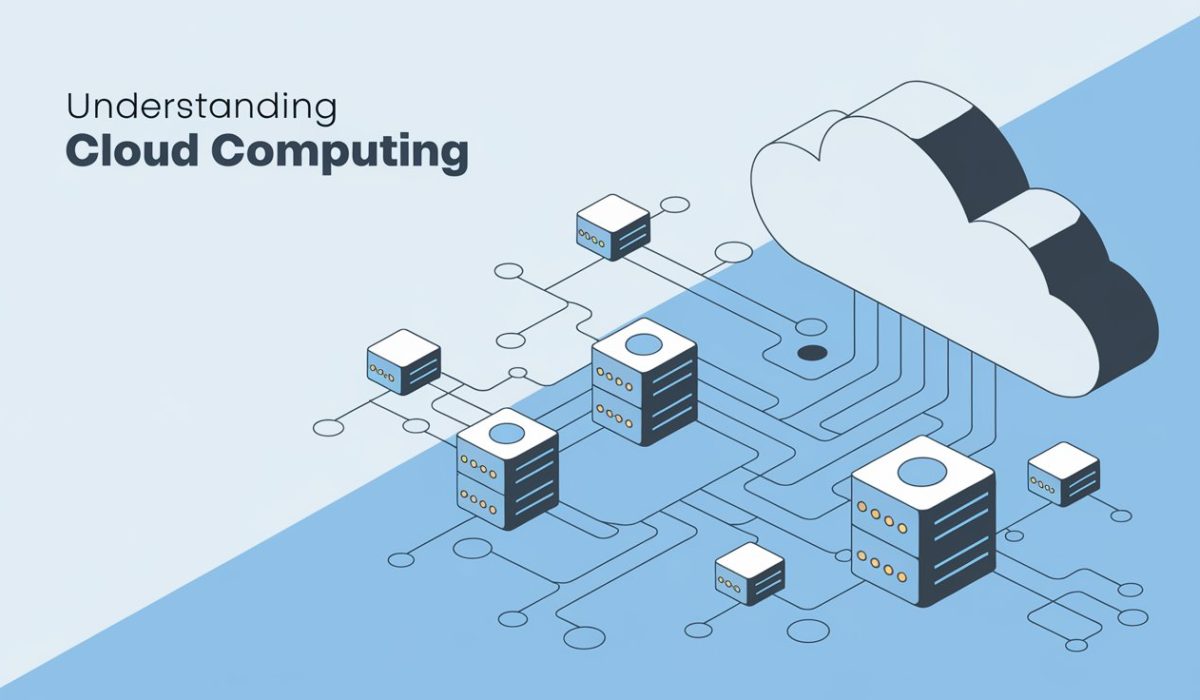Understanding Cloud Computing: A Beginner’s Guide
In recent years, cloud computing has transformed the way individuals and businesses store and manage their data. This revolutionary technology offers a flexible and scalable solution for accessing resources over the internet. In this guide, we’ll explore what cloud computing is, its types, benefits, and key considerations.
What is Cloud Computing?
Cloud computing refers to the delivery of computing services, such as storage, processing power, and applications, over the internet (the cloud). Instead of relying on local servers or personal computers, users can access resources hosted on remote servers. This shift allows for more efficient management of data and applications, enabling users to scale their resources up or down based on demand.
Types of Cloud Computing
There are three primary types of cloud computing, each catering to different needs:
1. Infrastructure as a Service (IaaS)
IaaS provides virtualized computing resources over the internet. Users can rent servers, storage, and networks from a cloud provider. This model offers flexibility, as businesses can quickly scale their infrastructure without investing in physical hardware.
2. Platform as a Service (PaaS)
PaaS offers a platform for developers to build, test, and deploy applications without worrying about the underlying infrastructure. This service streamlines the development process by providing tools, libraries, and services needed for application development.
3. Software as a Service (SaaS)
SaaS delivers software applications over the internet, eliminating the need for users to install or maintain software on their devices. Common examples include email services, customer relationship management (CRM) systems, and collaboration tools like Google Workspace and Microsoft 365.
Benefits of Cloud Computing
Cloud computing offers numerous advantages for businesses and individuals alike:
1. Cost Efficiency
By using cloud services, organizations can reduce their IT expenses. They only pay for the resources they use, eliminating the need for costly hardware investments and maintenance.
2. Scalability
Cloud computing allows users to easily scale resources up or down based on demand. This flexibility is particularly beneficial for businesses with fluctuating workloads, enabling them to respond quickly to changing needs.
3. Accessibility
With cloud computing, users can access their data and applications from anywhere with an internet connection. This accessibility promotes remote work and collaboration, as team members can work together seamlessly regardless of location.
4. Automatic Updates
Cloud providers regularly update their services, ensuring that users have access to the latest features and security patches. This automatic updating reduces the burden on IT teams and helps maintain system security.
Key Considerations
While cloud computing offers many benefits, there are also key considerations to keep in mind:
1. Security
Data security is a significant concern for businesses adopting cloud solutions. It’s essential to evaluate the security measures implemented by cloud providers and ensure that data is encrypted both in transit and at rest.
2. Compliance
Different industries have specific regulations regarding data management and storage. Ensure that your cloud provider complies with relevant regulations, such as GDPR or HIPAA, to avoid potential legal issues.
3. Vendor Lock-In
Switching cloud providers can be challenging due to the proprietary nature of some cloud services. Consider the potential for vendor lock-in and choose providers that offer flexibility in data migration and integration with other services.
Conclusion
Cloud computing is a powerful tool that can enhance productivity, efficiency, and collaboration for individuals and businesses alike. By understanding its types, benefits, and considerations, you can make informed decisions about adopting cloud solutions. As technology continues to evolve, staying informed about cloud computing will be essential for leveraging its full potential.
